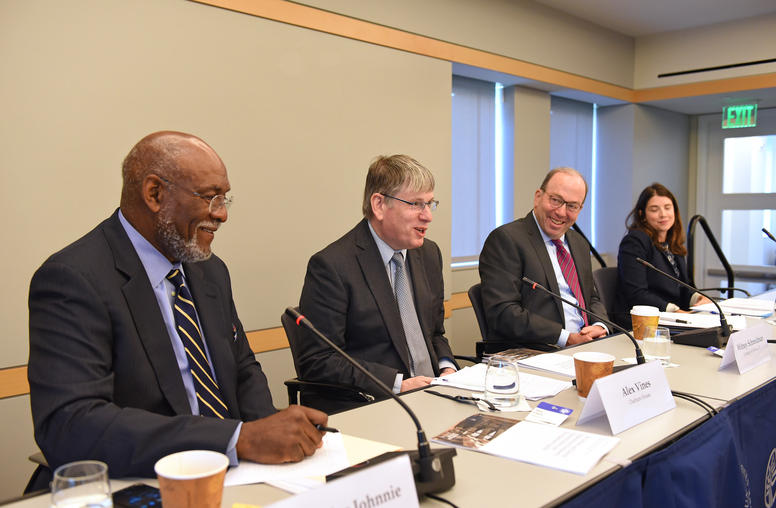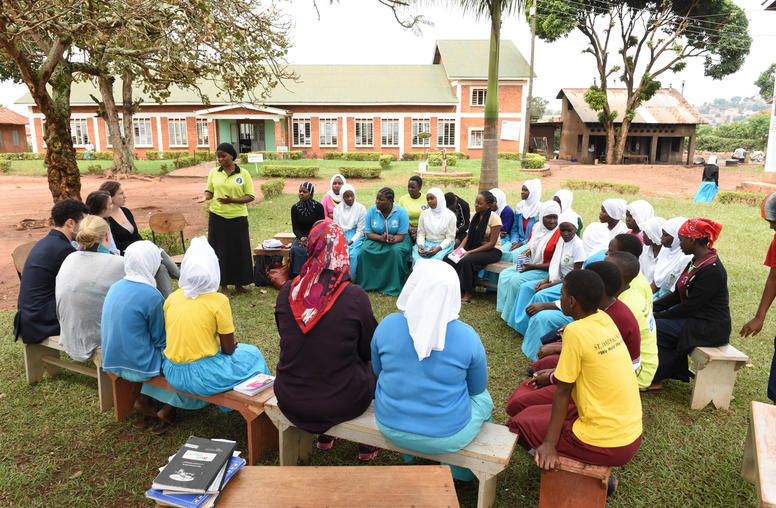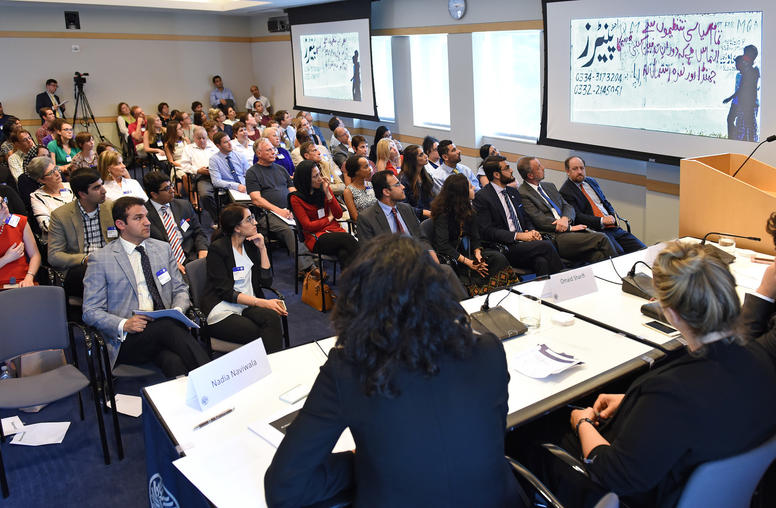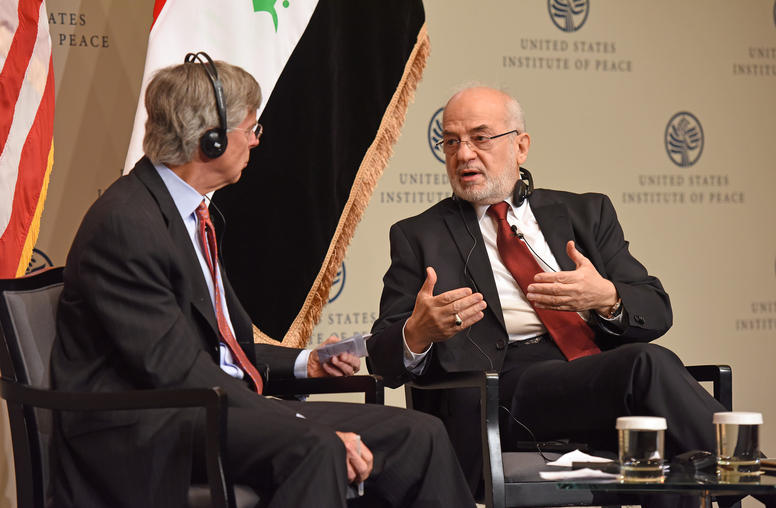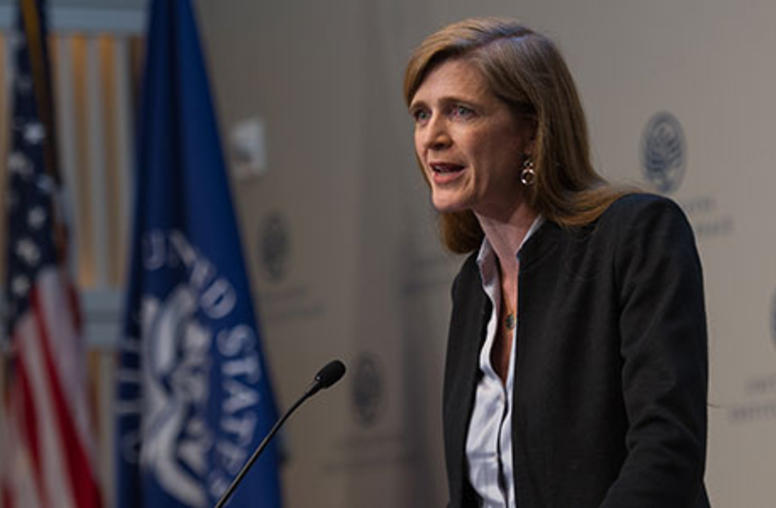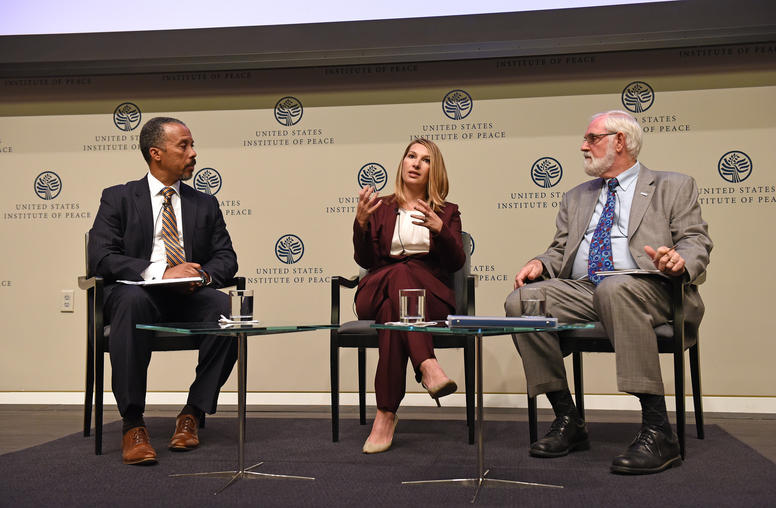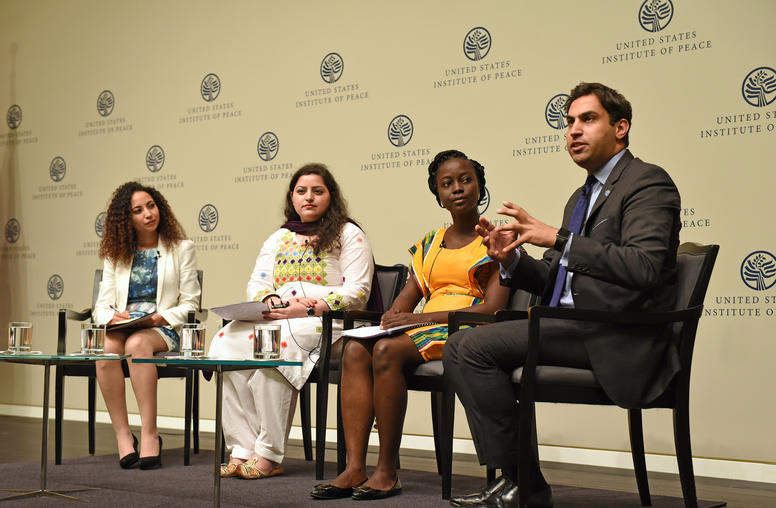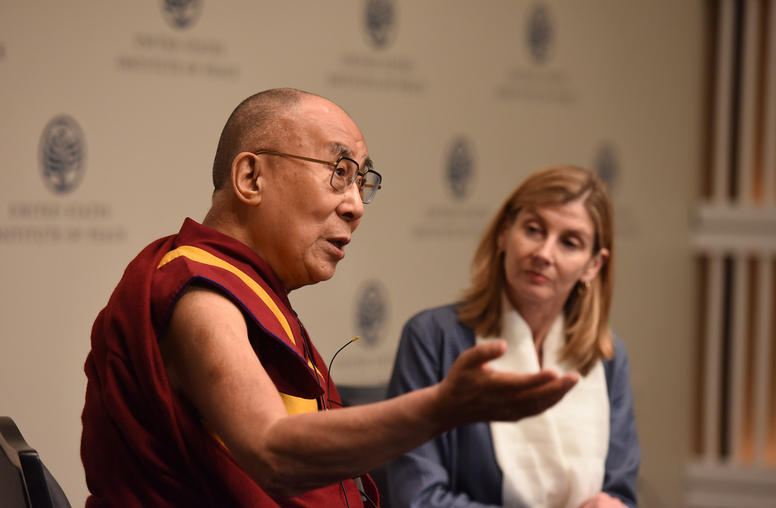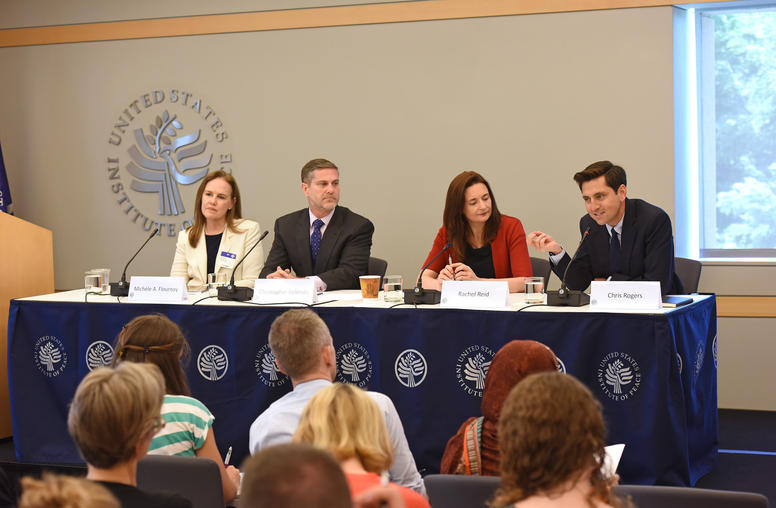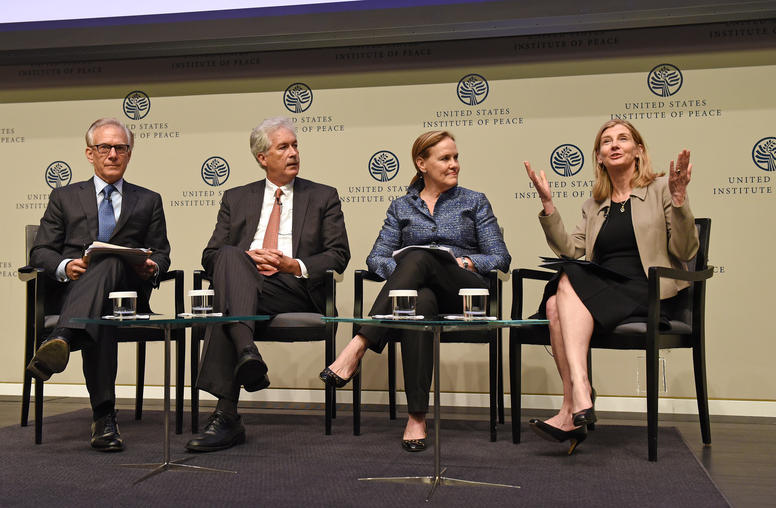
U.S. Leadership and the Challenge of ‘State Fragility’
Much of today’s regional disorder and global upheaval is driven by fragile states—those with a frayed social compact between their people and government. State fragility fuels problems from the unprecedented refugee crisis to turmoil in the Arab world, and from pandemic diseases to some of humanity’s deepest poverty. To meet this challenge, three Washington foreign affairs institutions made recommendations to the next administration and Congress to produce a more strategic, disciplined, and sustained U.S. approach. The study’s chairs—William Burns of the Carnegie Endowment for International Peace, Michèle Flournoy of the Center for a New American Security, and USIP’s Nancy Lindborg—public launched their report.
